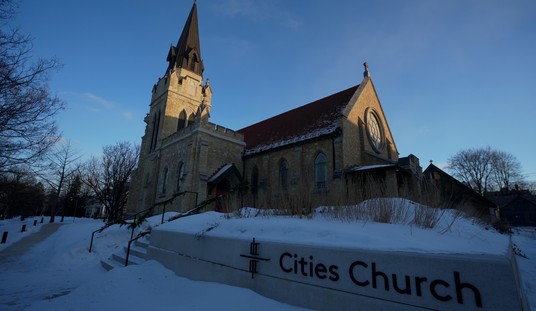When the Supreme Court tackles the issue of gay marriage today, one clue to how the justices intend to rule will be how much attention they pay to a thorny problem that will arise if the Court stops short of declaring a constitutional right to same-sex marriage.
The problem, which has gotten surprisingly little attention, is the fate of the thousands of gay marriages licensed in a variety of states where same-sex marriage bans were struck down by the lower federal courts. Those court orders will be superseded — and the marriages potentially invalidated — if the justices conclude that the Constitution does not require states to license gay marriages.
It is not just proponents of gay marriage who should be worried about this problem. A way to grandfather preexisting gay marriages must be found for there to be a chance of getting five votes against a constitutional right to same-sex marriage. Justice Kennedy is unlikely to sign on to any decision that tears existing marriages asunder.
Fortunately, there is a principled approach that leaves those marriages intact.
There is little chance that Justice Kennedy will leave gay couples completely empty-handed, so the grandfathering problem is most likely to arise from a compromise decision in which the Court says yes to only the second of the two questions before it. The questions ask whether the Fourteenth Amendment requires a state to 1) license same-sex marriages, or 2) recognize such marriages if they have been licensed out-of-state. A compromise decision would presumably find that while there is no constitutional right to same-sex marriage per se, the Constitution does requires that out-of-state gay marriages be recognized.
Such a decision may well appeal to Justice Kennedy, who has been known to look for ways to split the baby. If informed by the Constitution’s requirement that states accord “full faith and credit” to the acts of other states, a compromise decision would be grounded in principles of federalism, which Kennedy supports as much as he sympathizes with gay rights. In fact, Kennedy’s 2013 opinion striking down a section of the federal Defense of Marriage Act was based, in part, on federalism concerns. If Justice Kennedy is looking for a compromise decision that will appear restrained rather than activist and limit the precedential spillover, finding that the Constitution requires recognition but not licensing is a sound approach.
However, that approach does not in and of itself address the question of whether existing gay marriages would be grandfathered.
Without more, the question would be initially left up to the states but ultimately fought out in the courts. Though there has been little or no analysis of this issue to date, good legal arguments can be made on either side. Facing essentially the same question, Michigan Governor Rick Snyder opted to grandfather existing same-sex marriages, while Arkansas took the opposite approach. What is certain is that gay couples whose marriages resulted from federal court orders will find themselves in legal limbo if the Supreme Court does not definitively answer the grandfathering question.
When the California Supreme Court faced this question after Proposition 8 overruled the court’s discovery of a right to gay marriage, the court concluded that the ballot initiative did not apply retroactively because it was not clear whether voters intended such application. If the United States Supreme Court chooses to definitively address the issue as well, the justices will have to find a different legal rationale; the California rationale is inapplicable here. That brings us back to the need for a principled approach.
There is no requirement that the Supreme Court be principled, but an arbitrary fiat mandating that gay marriages be grandfathered would create resentment and maybe resistance in states that, otherwise, have just been told the Constitution does not require them to license same-sex marriages. Such states will not be pleased to find themselves stuck with the result of what turned out to be faulty constitutional reasoning by the lower courts. Consider that Alabama has already demonstrated its willingness to resist a federal court order legalizing gay marriage.
Fortunately, the grandfathering question can be answered in a way that flows naturally from a compromise decision by the Court. Recall that under the most likely compromise, a state, say Idaho, would be obligated to recognize same-sex marriages lawfully performed out of state. If that obligation is simply extended to include the same-sex marriages lawfully performed in Idaho — that is, the marriages that followed a federal court order striking down Idaho’s traditional definition of marriage — the grandfathering problem is solved. Gay couples married in Idaho or any other state remain married.
Principles of fairness suggest that gay couples be treated the same in Idaho whether their marriages were performed in-state or out-of-state, and so does the Constitution. Though most commonly applied to laws favoring state residents, the Privileges and Immunities Clause of Article IV stands for the proposition that people in and out of state should be treated equally with regard to fundamental rights.
Note that extending recognition to preexisting in-state marriages would impose very little additional burden on states that choose not to license gay marriages going forward. Under a compromise decision, Idaho will have to recognize same-sex marriages lawfully performed in a long list of states. The proposed approach to the grandfathering problem merely adds one more state to the list. The evenhandedness of this approach should make it easier for critics of gay marriage to accept.
If Justice Kennedy is hellbent on discovering a constitutional right to gay marriage, there will be no grandfathering problem to address. If, instead, Kennedy is looking for a compromise approach that neither side will celebrate but both sides can take some satisfaction from, finding a right to recognition and extending it to take care of the grandfathering problem is his best choice.









Join the conversation as a VIP Member